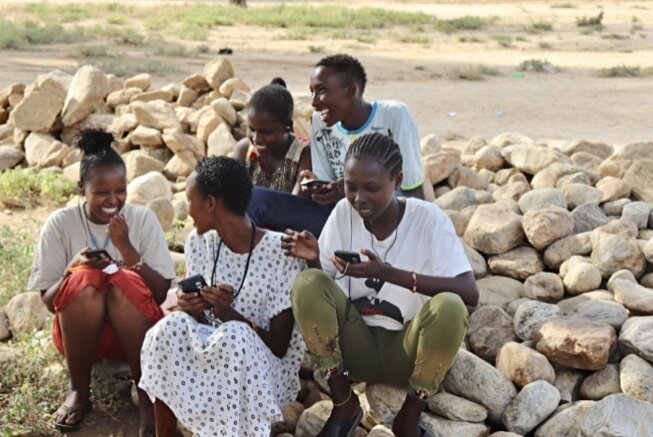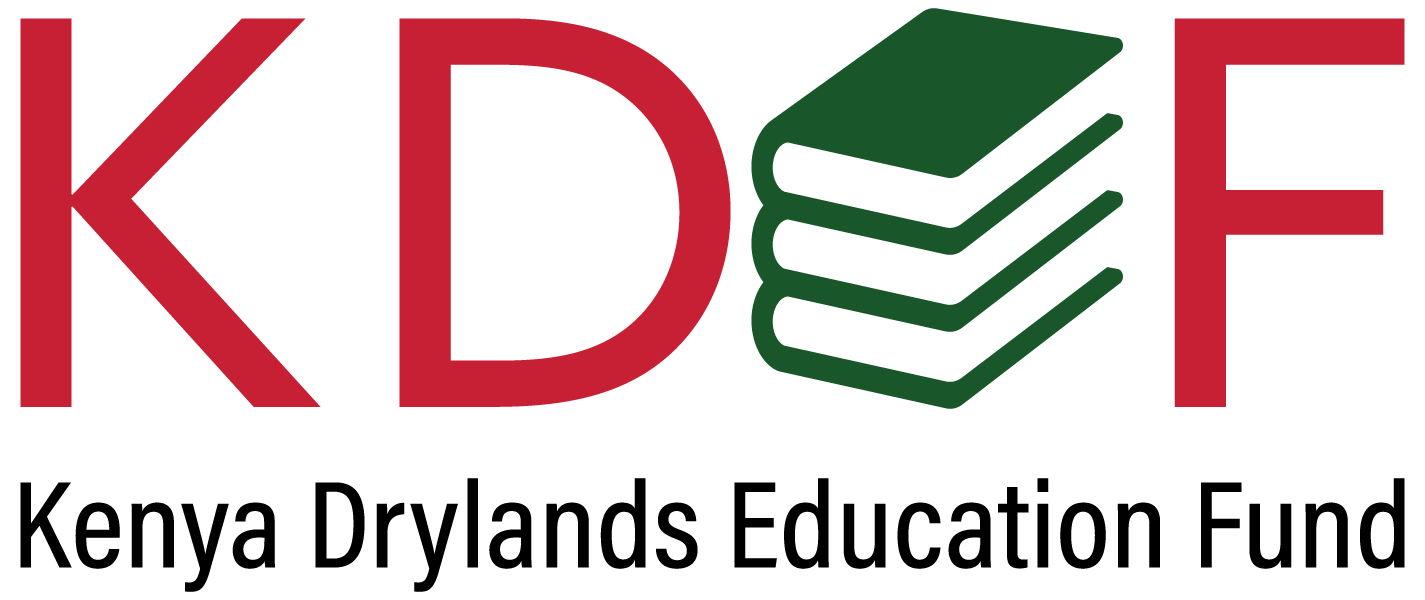
Challenges of Digital Learning in Northern Kenya

On the shadows of Poi Mountain, lies the most scenic place on the Ndoto Mountain Ranges – Ngurunit, next to Ngurunit River with clearest water you could find on these parts of Northern Kenya. During the rainy season, it is possible to take a hike up one of the hills to reach a part of the river where you can swim in rock pools and waterslide down natural flat rocks. Ngurunit with the most spectacular views, is absolutely one of our favourite workstations. Yet, there is still no network coverage here.
During the day, KDEF sponsored students have to gather in one spot to access online learning platforms that are installed in the new smartphones we recently provided. Under a big tree they can connect to unsteady 3G internet. They have scheduled their time such that they can study and still help at home. It is a delicate balance that is not easy to strike. According to Loipotwa, a form one student who also loves to play football, it takes great self-motivation and discipline to continue learning this season. He notes that homeschooling is nearly impossible especially since most parents are illiterate. They have to push themselves to keep reading until they can safely return to school.
First, it is frustrating that the academic year 2020 has been annulled by the Ministry of Education which means all students have to repeat the classes they were in before COVID-19. There will be no national examinations given in Kenya this year, a demoralizing fact for those who were set to transition out of different levels; primary, high school or universities.
Then came the hurdle of online learning. Some institutions are providing remote learning, and of these, the majority are using televisions, radios, smart phones and laptops. These are devices that students in low income households often do not have access to, and for those who have, network coverage and electricity or solar power still remain a challenge in places like Ngurunit, Nairimirimo, Ndonyo Wasin and many more.
The absence of school meals and the pressure to support their families has forced most parents to engage their children in informal livelihood economy to support household income. These include; doing laundry for others, herding people’s livestock, etc.
This has exposed children to many risks including malnutrition, exposure to violence, domestic abuse and neglect at home, child recruitment by armed groups, early marriages, teenage pregnancies and subsequent absence from school.
While girls are more at risk of not continuing with school, boys in pastoralist communities are equally susceptible. There has been an ongoing mass boys’ initiation among the Rendille and Samburu communities, these ceremonies are performed once every fifteen years. Through beautifully coordinated cultural celebrations, a new generation of warriors has continuously been unveiled one clan at a time since July 2019. These are boys between the ages of 10 to 18, and most of them are students. As is culturally expected, these young nomads are currently on move in search of pasture for their livestock.
It is in these movements that they are exposed to armed conflicts and they learn how to use guns. If not monitored, most of these children could easily get lost in this kind of life.
KDEF has been relentlessly consolidating resources to respond to impacts of COVID-19 in Marsabit and Samburu Counties, and children rights are at the center of our response mechanisms. In collaboration with parents, guardians and local leaders, we ensure that we know where all our scholars are at all times. We have made certain that all our sponsored students have meals at home, smart phones to access online learning and we monitor their progress and safety remotely.
We are still concerned about those who go for days without accessing the online platforms. Either because they got caught up in domestic chores or couldn’t access solar or electrical power to charge their phones. Sometimes ethnic conflicts or severe droughts force children to flee their homes where there is internet accessibility and power.
This pandemic has therefore provided unprecedented challenges and an opportunity in equal measure for the education sector, policymakers and other stakeholders. It is time to address key infrastructural concerns that would have alleviated some of the glaring inequities in Arid and Semi-Arid areas during this crisis. Kenya has harnessed technology in inspiring ways; with determined investments, bold strategic plans and innovations it is possible to mitigate both short-term and long-term impacts coronavirus will have on pastoralist children’s education.

